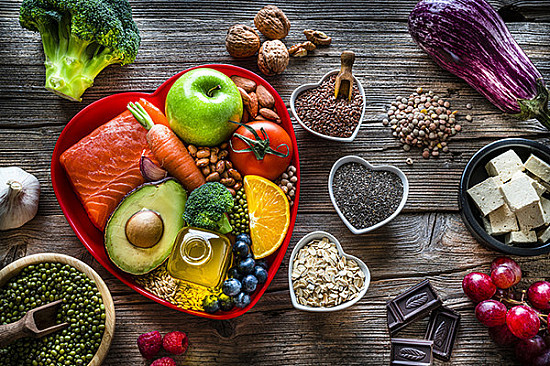Introduction
The food we eat plays a vital role in shaping our overall health, especially when it comes to the heart. A balanced diet not only provides energy but also protects against cardiovascular diseases such as high blood pressure, stroke, and heart attacks. Heart-friendly nutrition focuses on maintaining healthy cholesterol levels, controlling blood pressure, and preventing obesity. By adopting smart dietary habits, anyone can significantly improve heart health and overall well-being.
Why Nutrition Matters for Heart Health
Unhealthy eating patterns—such as consuming processed foods, sugary drinks, and trans fats—can increase the risk of heart disease. On the other hand, diets rich in natural, whole foods support the cardiovascular system, reduce inflammation, and help maintain a healthy weight. Nutrition acts as one of the most powerful tools for both preventing and managing heart disease.
Key Diet and Nutrition Tips for a Healthy Heart
1. Eat More Fruits and Vegetables
Fruits and vegetables are rich in fiber, vitamins, and antioxidants that lower cholesterol and blood pressure. Aim for at least 5 servings daily. Leafy greens like spinach and kale, and colorful fruits such as berries and oranges, are particularly beneficial.
2. Choose Whole Grains Over Refined Grains
Whole grains such as oats, quinoa, and brown rice contain more fiber and nutrients compared to refined grains like white bread or pasta. Fiber helps reduce LDL (“bad”) cholesterol and supports better digestion.
3. Include Healthy Fats
Not all fats are harmful. Unsaturated fats, found in nuts, seeds, olive oil, and avocados, are heart-friendly. At the same time, avoid trans fats (found in fried and packaged foods) and limit saturated fats from red meat and full-fat dairy.
4. Reduce Sodium (Salt) Intake
High sodium levels contribute to high blood pressure, a major risk factor for heart disease. Instead of processed or salty snacks, flavor meals with herbs, spices, or lemon. Adults should aim for less than 2,300 mg of sodium per day.
5. Eat Lean Protein
Replace fatty meats with healthier protein sources like fish, chicken, beans, and legumes. Fatty fish such as salmon, tuna, and mackerel are rich in omega-3 fatty acids, which support heart function and reduce inflammation.
6. Limit Added Sugars
Excess sugar contributes to obesity, diabetes, and heart disease. Reduce sugary drinks, sweets, and desserts. Opt for natural sweeteners like honey or fresh fruits instead.
7. Stay Hydrated
Drinking enough water supports proper circulation and helps maintain energy levels. Replace soda or sugary drinks with water, herbal teas, or fresh juices.
8. Practice Portion Control
Even healthy foods can lead to weight gain if eaten in excess. Eating smaller portions, avoiding overeating, and practicing mindful eating can help maintain a healthy weight, reducing stress on the heart.
Sample Heart-Healthy Daily Meal Plan
| Meal | Suggested Options |
|---|---|
| Breakfast | Oatmeal with berries and nuts + green tea |
| Lunch | Grilled salmon with quinoa and steamed vegetables |
| Snack | Apple slices with peanut butter or a handful of almonds |
| Dinner | Grilled chicken breast, brown rice, and a side of leafy green salad |
| Drink | Plenty of water, herbal teas, or freshly squeezed lemon water |
Conclusion
A heart-healthy diet is not about strict restrictions, but about making smarter food choices every day. By adding more fruits, vegetables, whole grains, lean proteins, and healthy fats while cutting down on processed foods, sugars, and excess salt, you can protect your heart and improve your quality of life. Remember, small changes made consistently over time create the biggest impact on long-term heart health.

